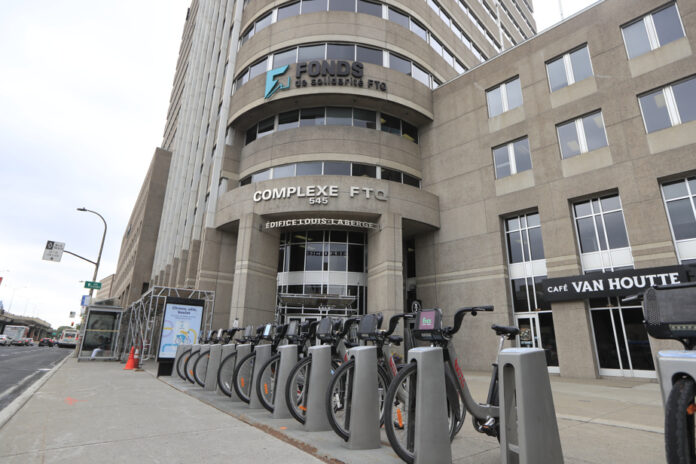When he was appointed first President and CEO of the Fonds de solidarité FTQ in 1983, Claude Blanchet was well aware of the mandate that awaited him: to find money to invest in companies. What he does not know is that the organization is preparing to play a locomotive role in a major economic education campaign that continues today.
“We had never thought of the importance that economic training would have had in changing mentalities in Quebec, he summarizes in an interview with La Presse. To incentivize workers, you had to explain to them why putting $10 in the fund would create jobs. »
Beyond the effect that the Fonds de solidarité FTQ has had on the Quebec economy, the 77-year-old believes that the democratization of financial literacy in the union environment is one of the main legacies of the organization. It has narrowed the gap that sometimes exists between unions and the private sector, Mr. Blanchet says.
But at the time of its constitution, thanks to a law passed by the National Assembly exactly 40 years ago this Friday, the picture is very different. Today’s labor shortage is a utopian concept. Companies are not looking for workers. Rather, they seek to get rid of it. The proof: the unemployment rate reached 13.9% in Quebec in 1983. We had to wait until 1988 before seeing it fall back below 10% (9.5%).
Despite the tax credits offered for the purchase of shares, workers are not convinced of the “rightness” of this tool, recalls Mr. Blanchet, who will lead the institution until 1997. At the time, the president of the Quebec Federation of Workers (FTQ), Louis Laberge – who also played a key role in the creation of the organization – had to intervene.
“Louis told them: ‘You are going to put the equivalent of a pack of cigarettes a week in the Fund and with that we will create jobs for our brothers and sisters who don’t have any'”, explains Mr. Blanchet. People were asking to understand a little more. We had to do a lot of training. We hadn’t imagined that. »
This is what sets the table for a new structure. Economic concepts – the importance of profits, understanding financial statements – are taught to local representatives as well as members of union offices. Over time, this has “changed the future of Quebec” by bringing the union world closer to that of business, said Mr. Blanchet.
“Before the Fund, Quebec was the champion of lockouts and strikes,” he says. Across Canada, people made fun of Quebec. The workers were able to understand why capital was needed in companies and to understand the need for profits in a company. »
Former Quebec finance minister Raymond Bachand agrees. Administrator of the workers’ fund at the time of its creation, the former politician also led it from 1997 to 2001. This one speaks of “cultural evolution”.
Through the Center de formation économique, the Fonds de solidarité FTQ pursues this mission of in-company education. This program involves “leaders and employees [of] partner companies” to promote “a better understanding on both sides of economic and financial issues”, explains the Fund.
The economic context has changed a lot since the birth of the labour-sponsored fund. Due to its size and that of its net assets, should the organization continue to benefit from tax credits when individuals acquire shares? Benoît Lévesque, professor emeritus of sociology at UQAM and co-author of a book on the Fonds de solidarité FTQ, believes so. The reason: the investor is always a big player in the venture capital niche, where start-ups or in the research and development stages are financed.
“There is a regional dimension,” he says. Venture capital funds, they are almost all concentrated in the big cities. The Fund has branches in each of the regions. »
For his part, Mr. Bachand recalls that economic shocks have been rather rare since the financial crisis of 2008. In this context, perhaps some have forgotten how useful labor funds can be.
“In times of great prosperity, in the market, you have a lot of competitors to remain relevant, he points out. When everyone pulls out of the market, the Fund stays there. When the sea is beautiful, we sometimes forget the usefulness of having a lifeboat in the ship. »
Established: 1983
Chief Executive Officer: Janie Béïque
Net assets: Over 18 billion
Shareholders-savers: 753,000 (as of November 30, 2022)
Partner companies: 3,600 (as of May 31, 2022)















